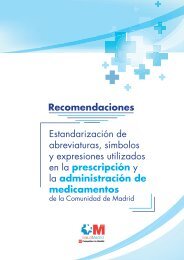lKd7nD
lKd7nD
lKd7nD
Create successful ePaper yourself
Turn your PDF publications into a flip-book with our unique Google optimized e-Paper software.
fear must have rippled through society as Vietnamese veterans<br />
returned home and began to start families. And I realized, they<br />
should. And as someone who could read Vietnamese, and who<br />
had some knack for writing in English, I reasoned if I didn’t<br />
make it happen, maybe no one<br />
else would.<br />
So I launched a plan with<br />
a professor of literature from<br />
VNU named Nguyen Lien to<br />
collect and translate all the<br />
Vietnamese short fiction and a<br />
few seminal nonfiction essays<br />
about suffering from dioxin<br />
exposure. We received a grant<br />
from the William Joiner Center<br />
for the Study of War and Social<br />
Consequences, and we went to<br />
“What started<br />
out for me as an<br />
obligation has<br />
transformed into<br />
something that<br />
gives me great<br />
fulfillment.”<br />
work producing Family of Fallen Leaves, which the University of<br />
Georgia Press published in 2010. Since then, it’s been acquired<br />
by libraries all over the United States and has been adopted in<br />
many university courses. Of course, it didn’t make the bestseller<br />
list. But at least it’s out there now. It exists, in English, ready to<br />
be found by any American who ever wonders what that part<br />
of our history entails, ready to make them really feel what that<br />
horror was like for the Vietnamese.<br />
And for me personally, the project opened up a whole new<br />
sense of purpose and possibility. What Americans don’t know<br />
about Vietnam is an endlessly rich field to work in, and while I<br />
always thought my career would involve writing about Vietnam<br />
to help bridge that cultural divide, now I realized I could keep<br />
writing about Vietnam but also be a conduit through which<br />
Vietnamese writers could reach American audiences directly,<br />
representing themselves with their own voices.<br />
It was with this sense of appreciation for voices, and<br />
particularly new ones, reflecting new perspectives, that Lien<br />
and I began our current project to extend Americans’ sense of<br />
Vietnam by translating stories from young Vietnamese writers<br />
who have been influenced more by globalization, cable TV, and<br />
hip-hop than guns and grenades. Through my work on the New<br />
Voices from Viet Nam project, I’ve met young writers from all over<br />
the country, and seen with new eyes the country I thought I’d<br />
already come to know so well.<br />
It’s also with this project that I’ve come to relish the joy of<br />
translating. The work unfolds and refolds like origami. As the<br />
The Art of Empathy: Celebrating Literature in Translation<br />
11



